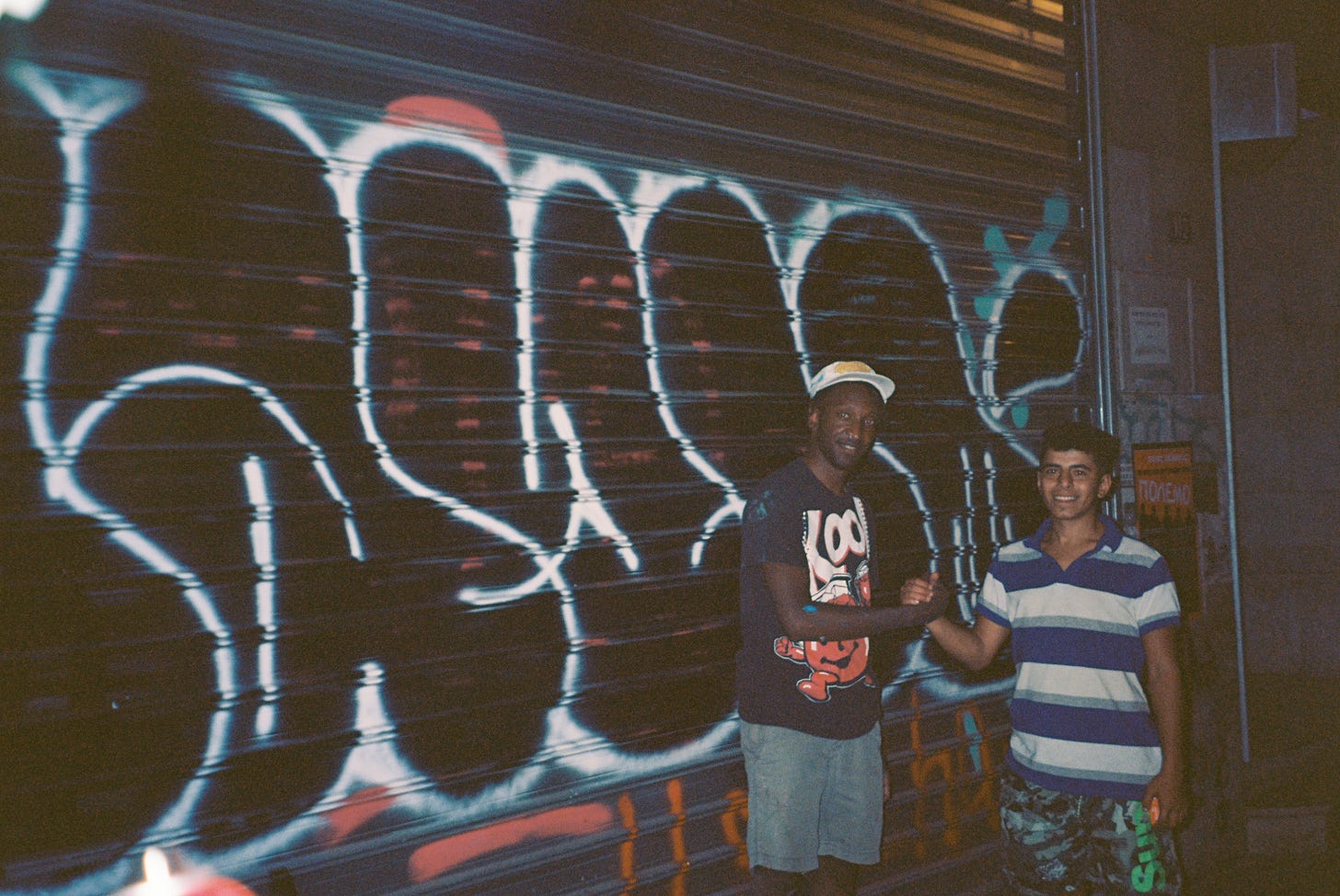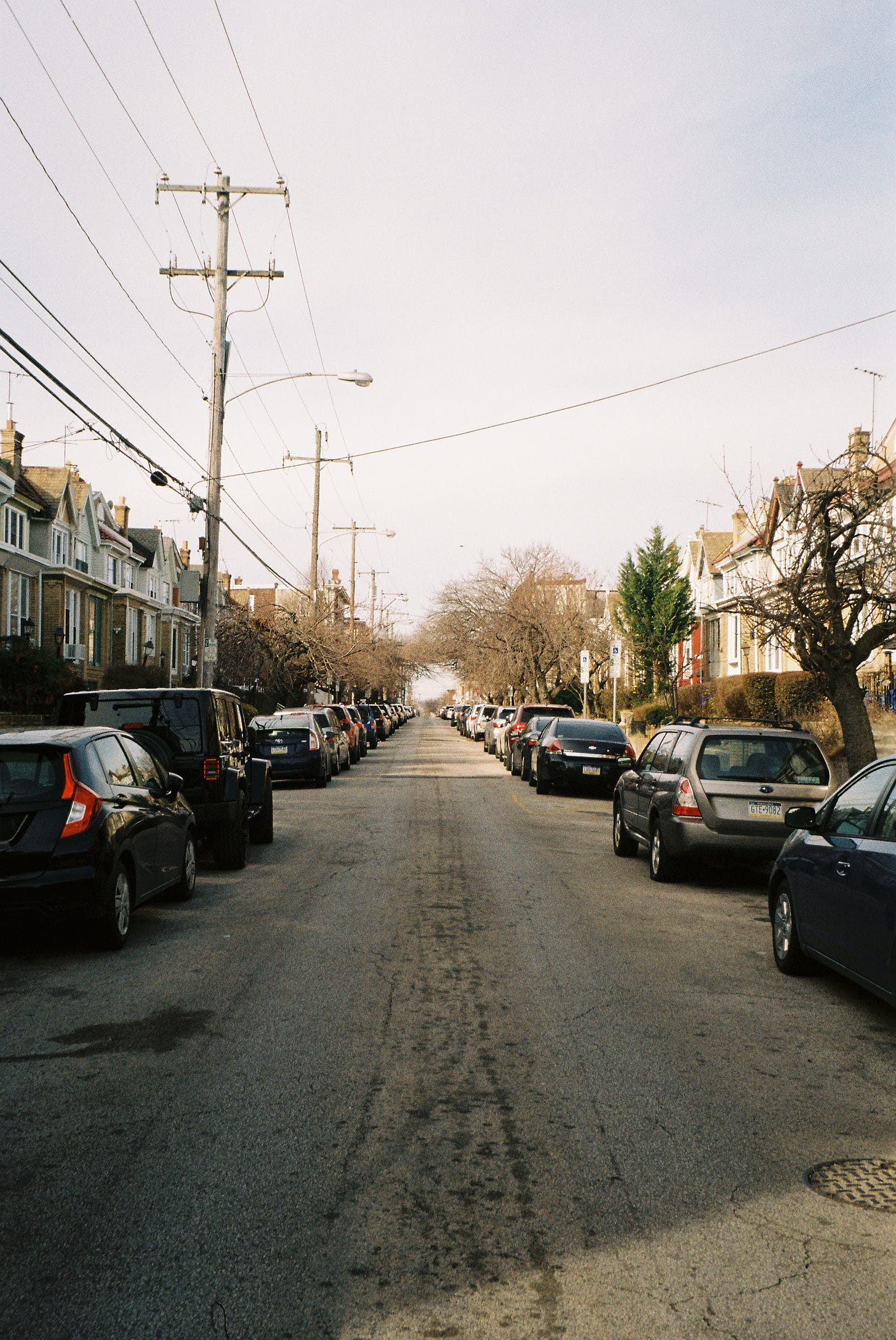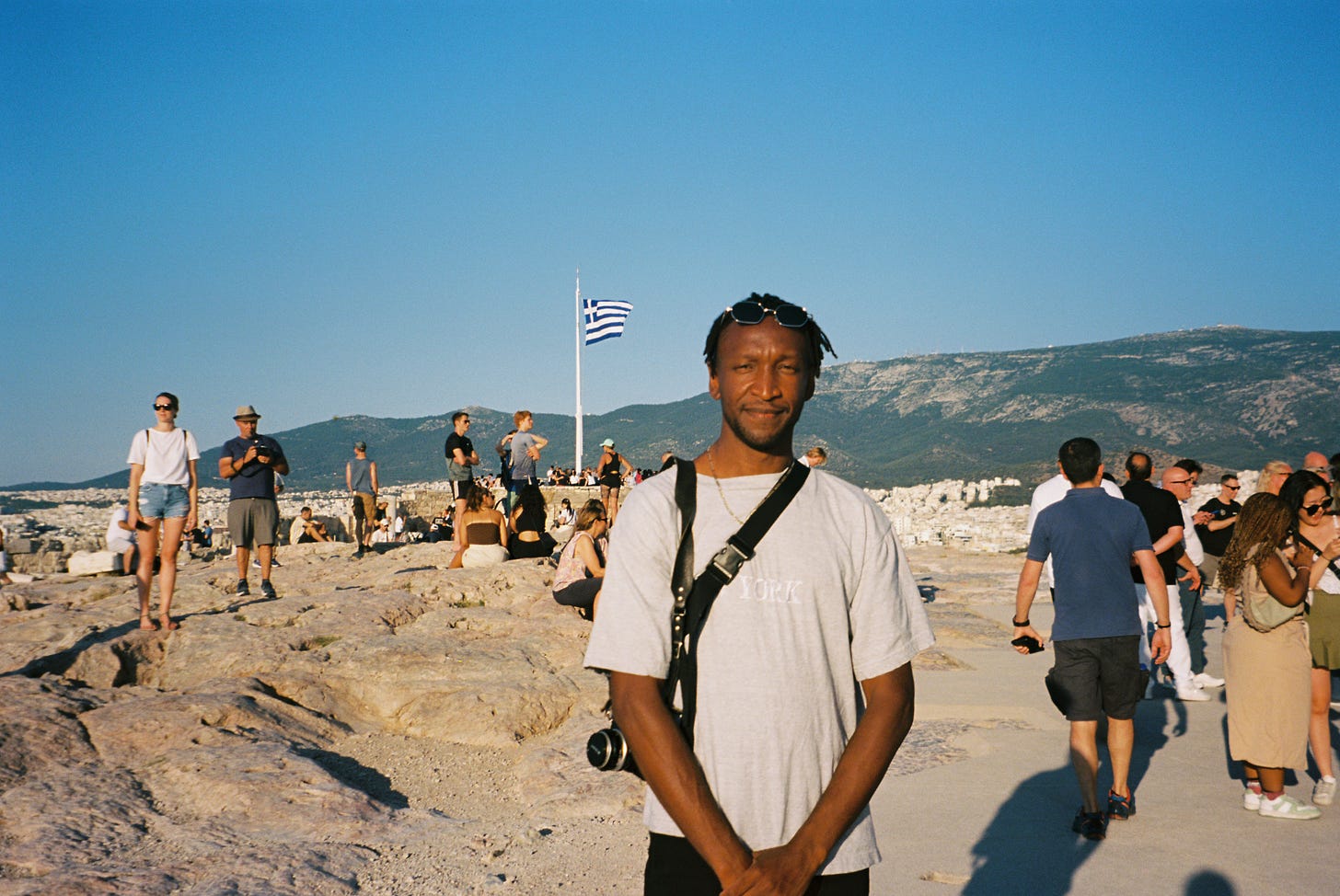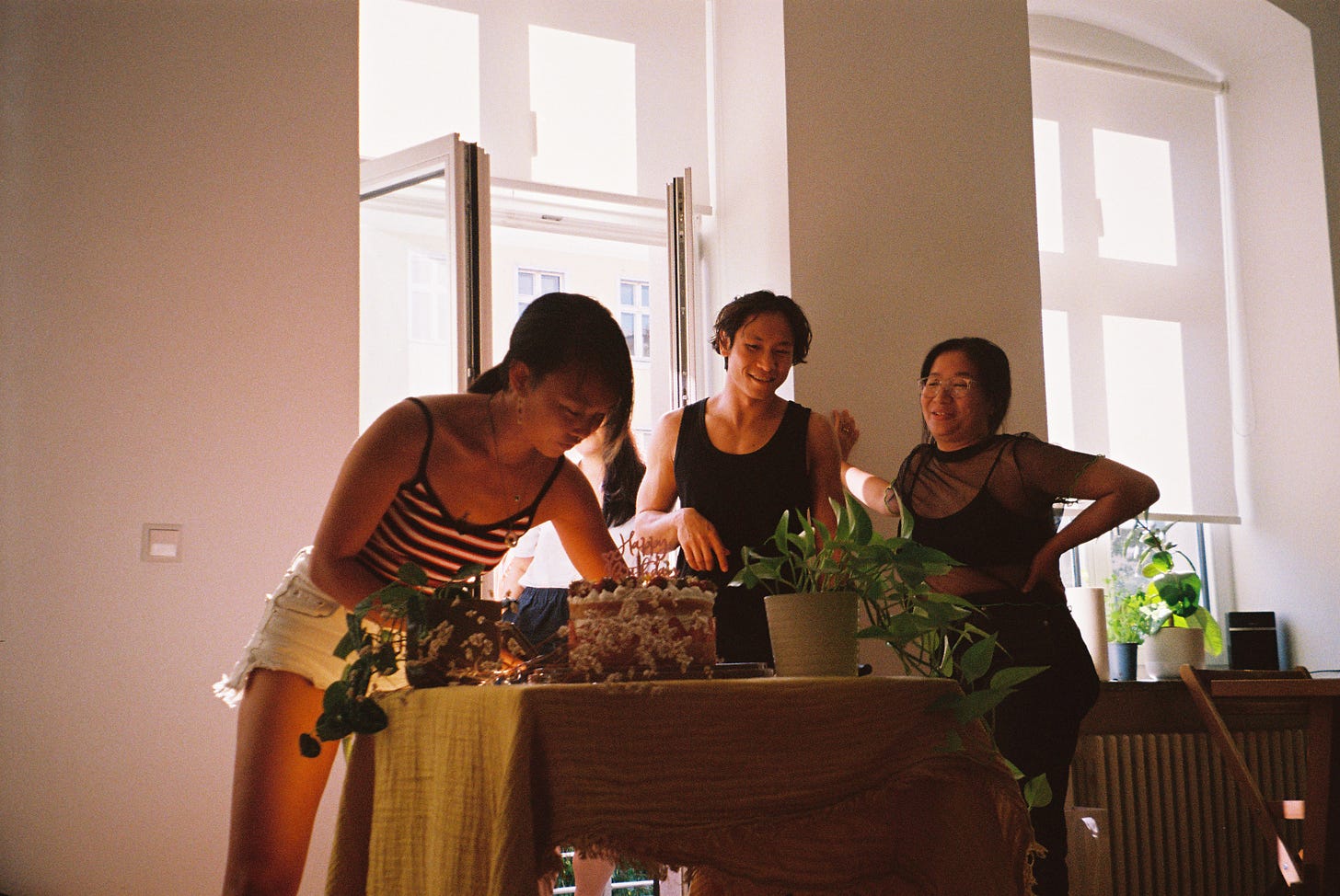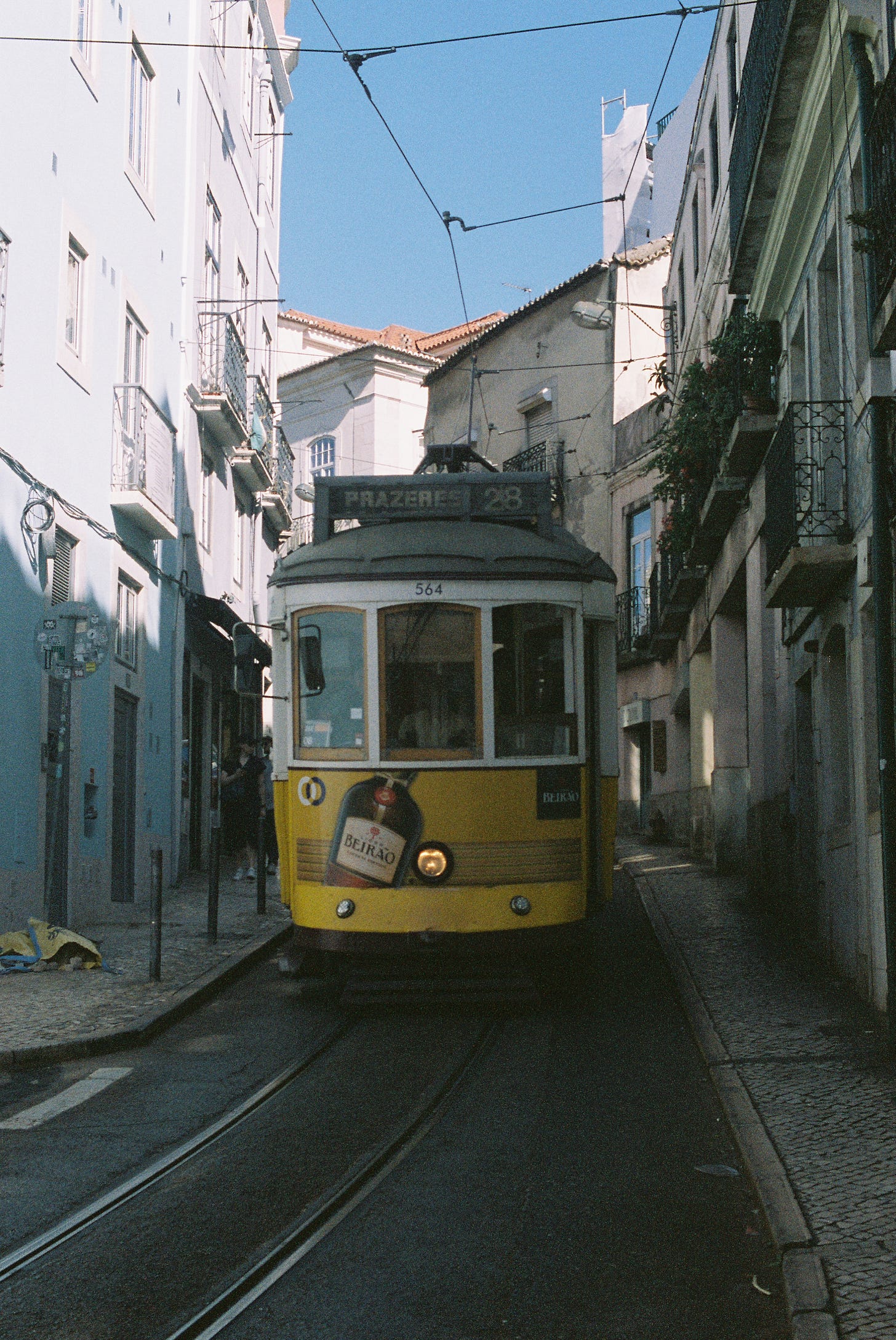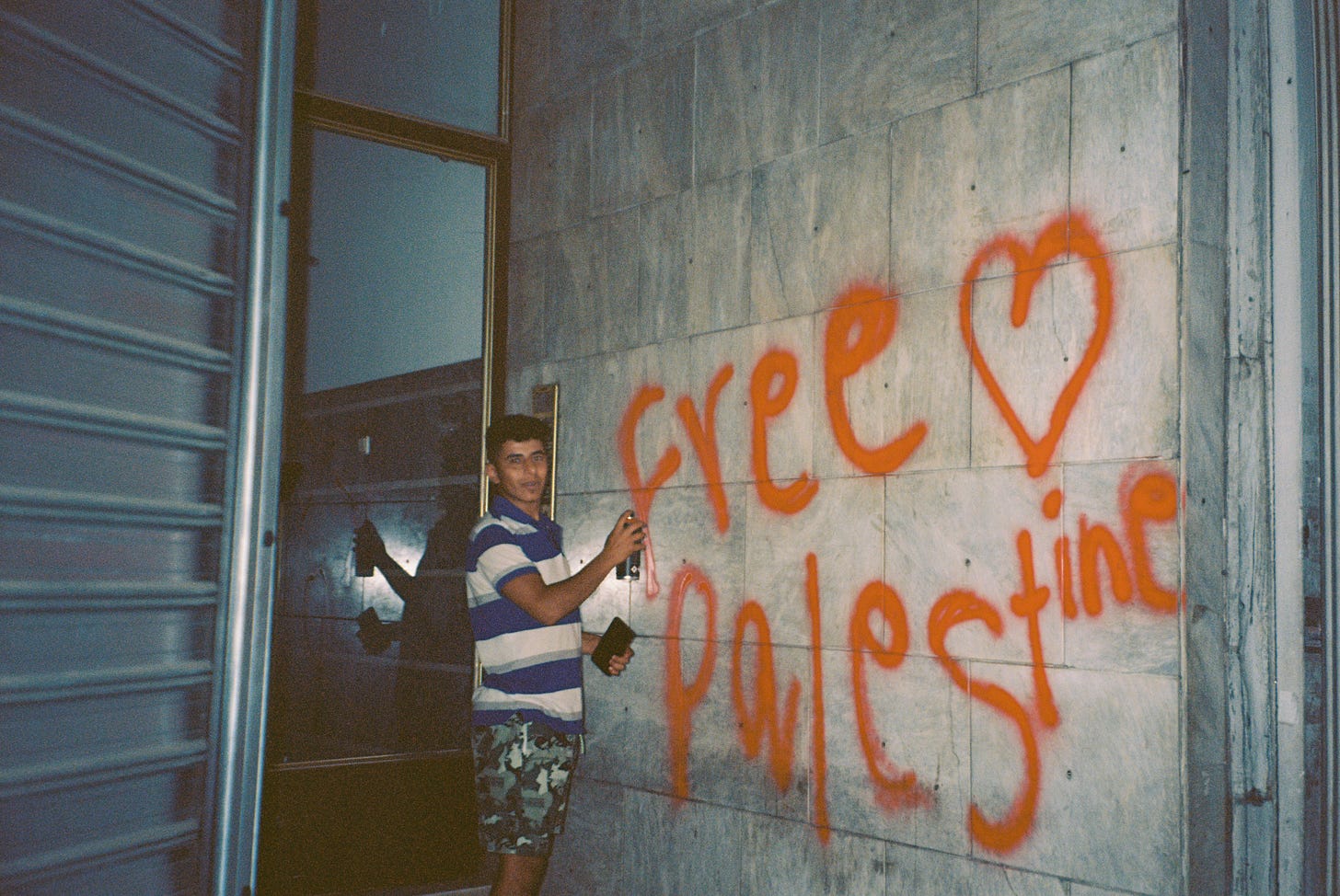The Dialogue and Discourse of 2023
A reflection on identity, community, Eurocentrism, American exceptionalism, and solidarity.
In June of 2023, I traveled to Europe for the first time. It was the first summer since the beginning of the ongoing COVID-19 pandemic that I felt confident venturing into the world without restraint. I originally planned this trip for the spring of 2020. In the fall of 2019, before relocating from the Midwest to Philadelphia, I befriended a German exchange artist and filmmaker through an internship with a local art entity and she invited me to visit her in Berlin after she returned. During her time in the states, we developed a friendship through dialogue and discourse. We shared our views on cultural intricacies and insights gleaned from the films we had watched over the years. From recognizing the misogyny in Spike Lee films. To acknowledging the manifestation of patriarchy in The VVitch, our distinct social lens bonded us together in our shared search for nuance.
I was especially looking forward to conversing with folks from around the world while in Europe. I am fortunate to exist in numerous queer, leftist, artistic communities that have introduced me to an inspiring group of friends and associates. Traveling has always been an opportunity for me to reflect on my emotional and intellectual growth through conversation with friends new and old. But the discourse of the last few years has at times left me feeling as if it isn't moving my moral compass in ways that felt subversive enough. I’ve come to find I am not alone with this feeling. In an article for Jezebel, Alex V. Green articulated this as: “The Emptiness and Inertia of Having Conversations”.
The sociopolitical climate in our highly-mediated contemporary era is rife with ideology and theory spewing from podcasts to your local barista. While there is power and value in our ability to engage in conversations that placate our disdain with the systems we exist under, for those of us who endure injustices daily these conversations can feel like another political call for prayers. Much like the influx of podcasts, I find that the majority of these conversations do not amount to tangible actions towards the revolutionary transformation I desire. Green refers to this exhaustion as: “The Having Conversations Industrial Complex” and I have willingly participated in this liberal practice despite its rudderless fashion.
I moved to Philadelphia in January of 2020, and in February I bought my tickets to Berlin. Later that month, I was accepted into a Media Studies and Production Master of Arts program. Then in March came the COVID-19 pandemic and subsequent lockdown. Isolated in Philadelphia, I turned to the endless cycle of conversations on dating apps to find connections. Due to the pandemic, I had to cancel my trip to Berlin that spring.
When I started my graduate program later that fall, I pursued intellectualism to mitigate my disdain for the systems of oppression and lack of accountability I witnessed from the resistance movements during the summer of 2020 and the careless actions that lead to the mismanagement of the COVID-19 Pandemic. In the process, I was able to acknowledge how my own indoctrination with white supremacy, capitalism, and heteropatriarchy contributed to the lack of connection I felt with the folks I was dating and developing friendships with.
In therapy, I learned how I projected the pain I experienced from these forms of oppression into all of my friendships and relationships. I also recognized how the angst of relocating during a pandemic, and starting an academic journey while feeling isolated, exacerbated my feelings of invalidation. Theory and politics may bolster the intellect that enables me to address my strife, however without community or praxis I don’t feel truly validated nor am I able to affect any meaningful change. For me to experience, contribute to, and feel growth I need to be engaged in a community of folks who share semblances of growth and change for all.
After completing my Master’s program, I started a position with an Ivy League university. The program I worked for claimed to specialize in “dialogue across differences”. In June of 2023, they flew our staff and students to Athens, Greece for a conference. Within hours of landing in Europe, I was on a bus with my coworkers and our students heading towards the Parthenon. The focus of the conference was mental health. The majority of my colleagues were political scientists. Our students were Gen Z recent grads who were preparing for entry-level professional positions in New York City or graduate school.
While at the Parthenon, and during the conference, politics and mental health were rarely discussed. At each seminar I attended the common theme was optimism and resilience in the face of oppression, which was often tied to, or otherwise assumed financial support. There was rarely any acknowledgement of the systems or policies that exacerbate mental health struggles or could improve support systems and foster sustainable communities. The highlight of the conference was a conversation between the president of the foundation and former president Barack Obama. Everyone was excited to hear Obama speak, of course.
When Obama spoke, he sounded like Obama. I looked around at the international crowd of folks and saw how he held their attention. I was especially attentive to my liberal and moderate colleagues, many of whom had stars in their eyes as if they were their parents watching the Beatles perform on television for the first time. I left the event and joked to a colleague that I needed to cleanse my political palate and intend a protest in Exarcheia. A friend of mine from the states, who is studying in Europe, happened to be in Athens with his cohort preparing to present work at a show.
I met up with the group of mostly white Europeans at a bar in Exarcheia. When I told them I’d just come from a talk with Obama, there was an audible moan that was reminiscent of what I would’ve expected from my community back in the states. Two Athenians expressed their familiarity and disdain with the organization hosting the conference. This distinction in politics and ideology between my colleagues in academia and my artistic peers was validating. For my colleagues, listening to Obama speak provided them with a sense of safety in their liberal and intellectual bubbles. In the leftist communities I exist in, Obama represents the failures and violence that comes from a naïve belief in democracy.
The radical camaraderie of the night was capped after a police car around the corner from the bar where we loitered was bombed in protest of the upcoming national Greek elections. This election included a far-right candidate whose political rhetoric was aligned with fascistic ideology. My time in Athens, a place those in the west consider to be the birthplace of democracy, was humbling. I was invigorated by direct action and folks who don’t hold praise for politicians solely because of their identity, but instead for their actual political praxis. It was a reminder that in our evolving socio-political climate, theory and ideology mean nothing without practice.
With the flight vouchers from my canceled trip to Berlin in 2020, I was able to purchase tickets to visit a few other European cities on this trip. My first stop was Berlin to reunite with the friend I met back in 2019. Upon arriving in Berlin, I was immediately accosted by airport police and asked why I was visiting. After the profiling and brief interrogation they let me go. It was made evident then that I was in a country where identity and class were measures of judgment because of the dominant group who resided there.
The reunion with my friend was joyous. I was able to meet her newborn son and develop a relationship with her partner, who I briefly met in 2019. We collaborated on projects we’d discussed for years. I spent most of my time with them in their sleepy neighborhood eating in parks or following my friend down the streets of Mitte as we ventured in and out of galleries with her stroller in tow.
It was here her partner began to point out the remnants of World War 2. Bullet holes in stone and synagogues guarded by police. My friend's partner, like many Germans, was stern and parochial in his invocation of German history. His description of the role of fascism, while coming from a place of educated accountability, felt eerily disconnected from the fact it was still present around the world, including in Berlin. It was apparent to me how those who haven’t had to emotionally navigate the worst of atrocities can be remiss of the patterns and cycles in history that lead to them. Even when in conversation with those who identify with oppression, folks who have only formally confronted the violence of fascism will assert a passive familiarity in effort to avoid the discomfort of speaking out on atrocities that produce feelings of guilt and shame.
After a few days with the parents in Wedding, I checked into a hostel in Neukölln. I immediately felt more alive in this vibrant and ethnic section of Berlin. The predominantly Turkish community provided me with a sense of visibility after being in mostly white neighborhoods. One night while out in the neighborhood my phone was stolen while chatting outside of a bar with some patrons. The next morning I bought a new phone from an electronics shop run by two Turkish men, neither of whom spoke English.
It was the first time on the trip, and likely in my life, where I was able to make an exchange without sharing language. It was humbling to witness the care, even if for financial profit, that came with attempting to interpret what was needed from each other. That evening, I was able to reconnect with a lifelong friend who’d recently relocated from Singapore to Berlin. They introduced me to their multicultural and queer community. With this group of folks, the conversations didn’t feel transactional or coming from a place of impotence.
While celebrating my friend's birthday in their partner's sun drenched Friedrichshain apartment, the conversation evolved fluidly in a manner reflective of our diverse national, political, racial, ethnic, gendered, and sexual backgrounds. From me, this was sharing how I’ve had to confront my own ideas of American exceptionalism as a result of meeting folks who were not impressed with or even desired to visit the United States. We discussed witnessing how white Germans attempted to suppress the shame they carry as a result of the Holocaust and how this relates to the rise of right wing politics in their country. I was introduced to southeast Asian dishes by friends of the diaspora and learned the ways cultural appropriation manifests in an international city outside of the United States. I was also able to recognize the ways folks from different cultural and ethnic backgrounds engage with pronouns. I gained insight from trans folks on how the counterproductive fracturing in queer communities, as a result of class and identity, parallels the intersecting barriers that have always prevented marginalized and oppressed groups from finding solidarity with each other.
In a single afternoon, I was able to engage in the conversations I sought on this trip that stimulated me thanks in part to friendship and humility. The nuance gained from the discourse we shared gifted more conviction to my belief in the necessity of a sense of community being formative towards conversations to enact the drive for those of us who desire growth and change for all. In a quote from her essay “The Transformation of Silence into Language and Action” Audre Lorde posits “Each of us is here now because in one way or another we share a commitment to language and to the power of language, and to the reclaiming of that language which has been made to work against us.”
On one of my last mornings in Berlin, I met with a German filmmaker who studied at a Master’s program in NYC that was similar to mine. He was also from the same city as Karl Marx. When we met for coffee, I humorously asked if he was related to Marx. To which he replied “Oh, you’re one of those guys?” This was another “aha” moment for me. From his response, I humbly accepted how it was silly of me to assume that a white, upper middle class German man would be a Marxist just because he was an artist and born in the same city.
It also allowed me to acknowledge that just because someone exists within radical artistic communities, resides in a internationally known queer friendly city, or is born in a nation that has produced and practiced political theory and ideology that has empowered or killed millions doesn’t mean they will possess and exist with that political ideology and praxis as a result of proximity. The naivety of my inherited American liberalism came to the surface in the recognition that I assumed all Europeans I’d meet would be radical, queer, Marxists rather than products of their own indoctrination with capitalism and neoliberalism.
I left Berlin with a recognition of why so many of my friends of color, as well as artists and writers I’d admire throughout history, have sought refuge in the city that advanced their artistry and political praxis. I also graciously accepted that Europeans were not exempt from perpetuating the cycle of white supremacy and heteropatriarchy. This notion was reinforced in Barcelona, the next city on my trip.
I was excited to finally be able to share a common tongue with folks, as Spanish is the only other language I moderately speak. But in parts of Barcelona I found what I experienced in the affluent neighborhoods of Berlin. Before I opened my mouth to reveal my American accent, white Europeans profiled and treated me as subhuman–the same racist and dehumanizing treatment I experience throughout the United States. This form of anti-blackness soured my brief time in Barcelona.
I arrived in the last city of my trip, Lisbon, exhausted and with low expectations. But was fortunate to be joined by one of the folks I met in Berlin who wanted to expand on the conversation and connection we developed after meeting at my friend's birthday party. One of our mutual friends also connected us with another friend of theirs who lived in Lisbon. In Barcelona, I felt isolated by my identity and even with a shared language I didn’t always feel safe in the spaces I was navigating. In Lisbon, however, I was already supported by someone who saw my humanity through the words and wisdom we shared. When I returned home, my American friends described our connection as similar to that of “Before Sunrise”, a film I still have yet to see. In Berlin, as well as in Lisbon, their background as an Indian woman who’d never been to the United States provided us with a vantage of colonialism and white supremacy that widened our critical lenses. As we were able to observe and discuss the differing ways in which colorism, alongside racism, impacts us.
Our host in Lisbon, a Brazilian native, lent her cultural nuance by providing context on my inquiry of why the colorism and anti-blackness I’d experienced in Spain and Germany didn’t feel as present in Lisbon. She explained that because Africans of the diaspora have always resided in Lisbon, due to Portuguese colonization in Africa, and Brazilians of African descent have begun immigrating there in recent years, Lisbon is a more racially diverse than other European cities. This was evident in how as we ventured around the city as a black man and a brown woman, I did not feel as if we were being watched and judged. An experience I’ve lived with my entire life in every city I’ve visited. I was able to confidently walk into spaces without reservation, even if I didn’t speak Portuguese. Lisbon provided an unexpected sense of peace and solace that once again came as a result of friendship, humility, and conversation.
The relative privilege I possess in my ability to travel and hold these experiences is never lost on me. I am reminded of a June Jordan quote from her essay “Report From The Bahamas” where she proclaims: "This is my consciousness of race and class and gender identity as I notice the fixed relations between these other Black women and myself. They sell and I buy or I don't. They risk not eating. I risk going broke on my first vacation afternoon.” It is not my blackness that has afforded me the opportunity to experience and bare witness to the lessons of the world as I have. It is the words and actions I’ve shared with people I am in community with over the years that have presented me with these opportunities for connection and growth.
Upon returning to the United States, I found myself humourously repeating the viral adage “Europe changed me”. It is true that with my time abroad, or on holiday as I adopted, my perspective shifted as a result of the people and conversations I engaged in with folks I shared a connection and community with. It wasn’t Europe that changed me, it was the folks I met and befriended from around the world who created a space for understanding and compassion. I returned home with enhanced conviction and humility. I accepted that my position at the university was not aligned with my growth and politics as a result of the injustices I witnessed and experienced while working within the space. In a meeting I requested to discuss the toxic environment that arose during my time with the program, I was told by the director of our program, who once expressed to our students that accountability is used to shame people, that they were no longer funding my position and I was laid off immediately. Rather than being open to a dialogue across differences that would help foster an environment that would support the mental health of myself and my coworkers, I was laid off for speaking up against the injustices that would lead to paideia.
I also ended a budding romance after accepting that even if the person I was seeing valued my intellect in conversation, their lack of a political praxis and inability to acknowledge how their condescendingly charitable approach to connection is related to their identity which prevented us from being in community and connecting further with each other emotionally. In a conversation with a friend, after witnessing the escalation of the Israeli occupation of Palestine, I realized how uncomfortable I was with his callous notion that we aren’t responsible for the emotions of others and how this lack of compassion after witnessing violence and death was indicative of patriarchal ideology that did not make me feel safe in the friendship. I ended this friendship, and after reflecting on these shifting relationships in my life, I began to grieve.
I grieved in conversation with my inner monologue after processing how much harm and neglect I’d personally experienced at work, at home, and in my relationships over the last few years of my life. The validation and community I found in Europe through conversation and connection made me softer in my humanity, but without a supportive community to engage with daily I became isolated back home which led me to cutting out the people in my life who did not desire safety through conversation and compassion. I grieved the years of effort I put into pursuing a career in academia with the expectation that it would provide me stability only to accept that our relationship to labor is not how we achieve safety and solace. I grieved when speaking with friends of how witnessing the genocide in Palestine lead to them also ending friendships, relationships, cutting off family members, leaving jobs, losing jobs, and questioning the value of their own existence. I grieved with my therapist when joking that my toxic trait is that I have naively believed we all want to grow and change to make the world better for each other.
In processing my emotions, I was able to confront that as a son, friend, lover, and artist I have always sought a liberating space free of colonial restrictions for the people I am in community with. It brought to mind a quote I read in an interview with Mireille Fanon-Mendes France on Palestinian solidarity where she states: “...I understood the most important right is the right to self-determination for all peoples. In fact, this right is complementary to the right for states to choose their own political representatives, and the right to use and benefit from their own natural resources.” For me, our most natural and humanizing resource has always been our ability to communicate and form community with each other through our words and actions.
This reflection brought me back to a night in Athens. While wandering the streets of Omonia, my friend and I met a Palestinian refugee named Hasan. Hasan told us of his family, shared his favorite TikToks, and portrayed his life in Athens to us while sharing laughter. I asked Hasan what he enjoys about Athens and TikTok. He told us he feels safe being himself in Athens, and TikTok connects him to a community where he can use his words to encourage change and tell his family's stories. I hugged Hasan and thanked him for sharing his words and laughter with us. We parted ways and we will likely never see each other again. But with our words and actions we acknowledged our humanity, and made evident our solidarity with one another. As 2023 winds towards a dark and cold ending, I find warmth knowing there are folks in this world whose words and wisdom continue to spark the flame that powers my conviction for conversations amongst the community of folks whose politics and values enrich my humanity.


